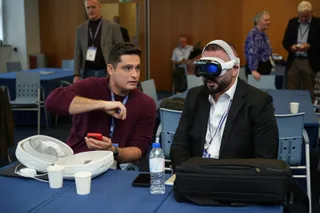New UT System Health Biobank to advance scientific discovery
Contact Our Team
For more information about how Halldale can add value to your marketing and promotional campaigns or to discuss event exhibitor and sponsorship opportunities, contact our team to find out more
The Americas -
holly.foster@halldale.com
Rest of World -
jeremy@halldale.com
The University of Texas (UT) System is developing a biobank so multiple UT institutions can more efficiently share data and biological samples used for medical research. The UT System Health Biobank (UTSHB) will join the professional expertise and resources of seven large academic research and clinical institutions in the UT System: UTHealth in Houston, UT Health San Antonio, UT MD Anderson Cancer Center, UT Medical Branch, UT Southwestern, UT Health Northeast and UT Rio Grande Valley.
The UT System has dedicated $3.5 million to support the implementation of a biobank software platform. Three institutions will participate in a pilot phase of the initiative, and once complete, the remaining sites will be added. UTHealth, which already is established as a national center of biobanking and biobank-related research, will lead the collaborative effort.
Many institutions already have biobanks and are determining how to work together to best utilize the biospecimens and data, said Jennifer Sanner, Ph.D., director of the UTHealth Center for Clinical and Translational Sciences (CCTS) Biobank and UTSHB project lead. “By transforming multiple local biobanks into a cohesive and consistent system, researchers will be able to conduct research using larger sample sizes and data sets,” Sanner said. “The end result will be improved research effectiveness and quality, and faster translation of discoveries to directly benefit patients.”
Michael Laposata, M.D., Ph.D., professor and chairman of the Department of Pathology at UT Medical Branch, noted that UTSHB will help make samples from patients with even the rarest diseases available to multiple institutions. “UTMB, for example, can build and share a sample collection of rare infectious diseases while expanding new areas of research excellence by using samples from diseases, such as cancer, that are collected largely from other UT institutions,” Laposata said.
“Once in place, the UTSHB network will speed scientific discovery and translation of these findings into patient care, and will make the research of UT faculty more competitive for grant funding,” said Ray Greenberg, M.D., Ph.D., UT System executive vice chancellor for health affairs.


